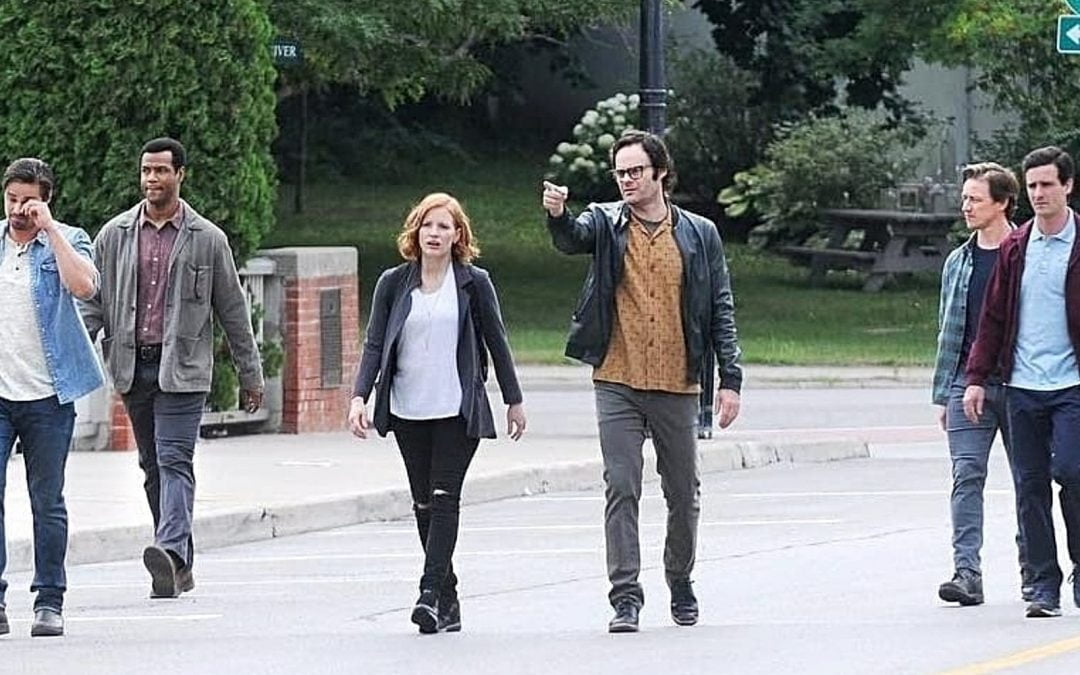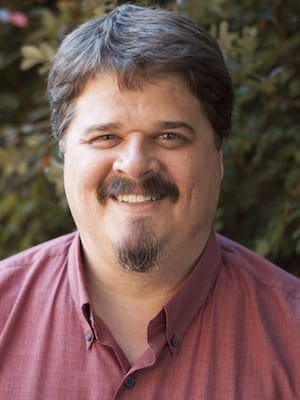Stephen King’s book, “It,” is about a blood covenant, as I noted in the antecedent article.
Digging deeper, we find the covenant is fueled by profound foreboding coupled with an inescapable sense of love.
From cover to cover, the Bible introduces us to all kinds of people, and there is often a sense of impending doom; the people are often afraid.
From Genesis to Revelation, God says repeatedly, “Be not afraid.” God knows we are a fearful people – and fear is paralyzing.
Fear makes us shut our doors, close our curtains and hide in our closets, hoping the bad things out there will not find us.
Fear makes us want to blend in, to not make waves or rock the boat. Fear screams at us that life is risky and dangerous and that somebody will very likely get hurt. Fear intimidates us from becoming too involved with the world.
Whenever God sends the message, “Be not afraid,” my first response is usually, “But God, have you seen what’s out there?”
We should be afraid; we should be very afraid! There have been many days I have been scared of so many things that the best I could do was to just show up.
But maybe showing up is enough; maybe that is more than half the battle.
In “It,” seven bullied and scarred teenagers known as The Losers Club fight off an ancient and savage evil.
They make a blood covenant with one another to return to fight the evil together again if it ever returns to their town.
Twenty-seven years later, six of the seven old friends are scattered around the country and beyond. They have lost touch with one another.
One of them, Mike Hanlon, whose family was the only African-American family in town, never leaves the fictional town of Derry, Maine.
Adult Mike pays close attention to new events unfolding around him, concludes (rightly so) that the evil has awakened again and tracks down the rest of The Losers Club.
One of them cannot find it within himself to return to face the monster a second time. But for the others, just showing up is enough; showing up is half the battle.
A pastor friend of mine, Mike Smith, once preached that fear causes us to live as if there is no God in whom we can trust.
Mike says we can choose, even with every reason to be afraid, to live as if we can really trust God. “Live as if there is a God,” Mike says.
In a 2014 interview with Rolling Stone magazine, none other than Stephen King himself says we all need a source of strength. King states that for him that means he chooses to believe God exists.
Live as if there is a God in whom we can trust. Choose to believe God exists. Mike Smith and Stephen King. Two of my favorite theologians.
Choosing to believe and live as if God is with us moves us from fear to love. The Bible reminds us that perfect love drives out fear. Love is of God, and God is love (read the whole beautiful and empowering passage in 1 John 4).
In Chapter 14 of “It,” King composes a beautiful and empowering scene: the five other Losers Club adults reunite back in Derry, Maine, with their old friend, Mike Hanlon. King takes the reader into Mike Hanlon’s mind, into his soul.
As the old friends are laughing, crying and “catching up” with one another, Mike realizes they all still love one another.
“Things have changed over the last twenty-seven years, but that, miraculously, hasn’t,” King writes. “It is, Mike thinks, our only real hope.”
Love is their only hope.
I do not want to give too much away, but in Stephen King’s novel, like in our Holy Scriptures, beautiful and terrible things happen; and, in the end, love really does win.
In this world with so much death and destruction and violence and hate, love really is our only hope.
Editor’s note: This is the second of a two-part series. Part one is available here.
Author’s note: The second chapter of the movie adaptation is presently in theaters. Remember, “It” may not be appropriate for everyone: “It” contains gruesome violence, sex and disturbingly “un-Christian” things (not unlike our Holy Bible). Yet, through it all, there also emerges good news.
Pastor of University Baptist Church in Starkville, Mississippi, and the author of five books, including A Rabbi & a Preacher Go to a Pride Parade.


